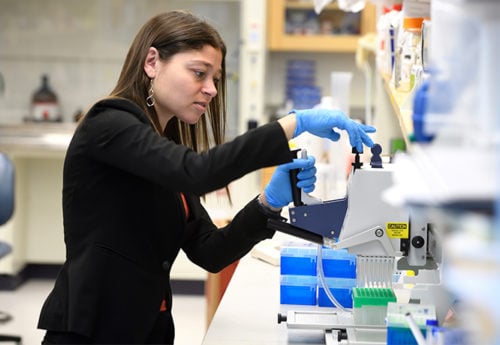Immunoengineering harnesses the power of the immune system to treat diseases, such as cancer, and to promote tissue regeneration for improved healing and repair. In our program, we apply engineering methods to quantitatively understand the immune system in clinically-relevant contexts to improve existing therapies and to develop new ones. Our program requires a modestly-sized core curriculum supplemented by other courses and research opportunities offered across Johns Hopkins’ world-leading, multidisciplinary immunotherapy efforts.
Below, you will find a suggested list of courses to help you in your course planning. Your academic interests determine the remaining courses (focus area electives). You will meet with the faculty lead of your chosen focus area to determine your course plan. The program administrator will provide additional advisement and course approval. Please note that all listed courses are suggested and may not always be offered. Course offerings are subject to change from semester-to-semester.

